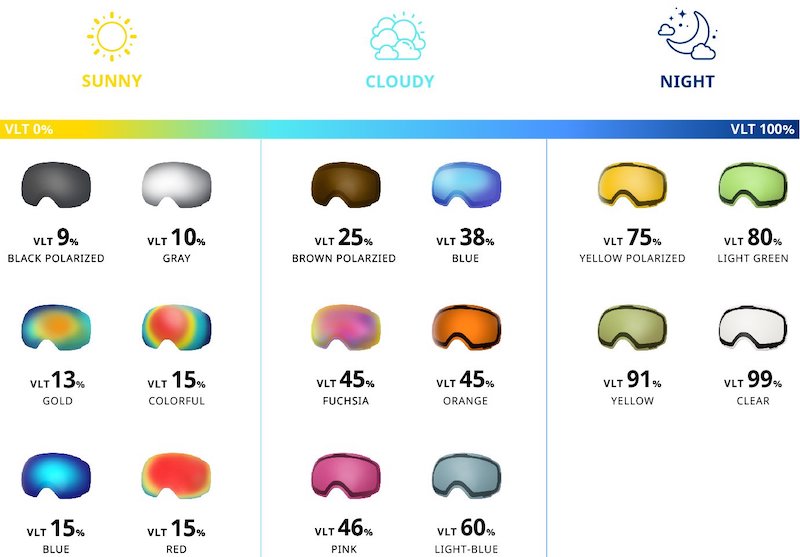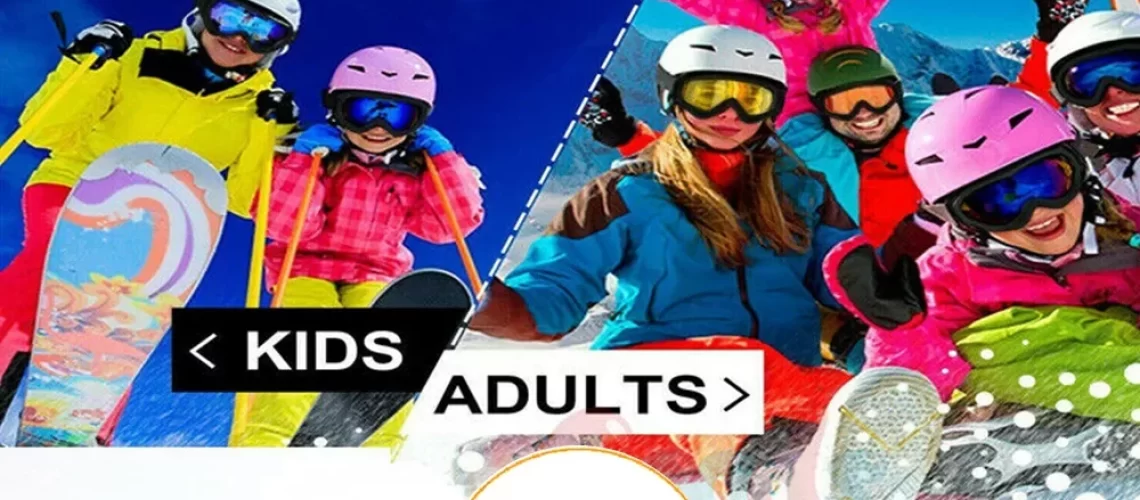As a skier, having the right gear is crucial to ensure an enjoyable and safe experience on the mountain. While skis, boots, and jackets are often considered, one essential piece of equipment that should not be overlooked is ski goggles. VLT ski goggles, in particular, offer a practical and stylish solution for skiers of all levels.
Vlt Ski Goggles Meaning
VLT” stands for “Visible Light Transmission” and is a measure of how much light can pass through the lenses of ski goggles. It is expressed as a percentage, with higher percentages meaning more light can pass through, and lower percentages meaning less light can pass through.
Higher VLT percentages are ideal for low-light conditions, such as skiing on cloudy days or at night, while lower percentages are better suited for sunny days. VLT ski goggles are versatile and come with interchangeable lenses to accommodate varying weather conditions, making them a convenient option for skiers who prefer not to carry multiple pairs of goggles.

What Is A Good Vlt For Ski Goggles?
When choosing a VLT for your ski goggles, you should consider several factors:
Weather Conditions: The amount of light that passes through the ski goggles depends on the VLT level of the lenses. If you plan to ski in bright, sunny conditions, a lower VLT level (10-15%) is recommended to reduce glare and eye strain. For cloudy or overcast conditions, higher VLT levels (25-36%) may be more appropriate to improve visibility.
Lighting Conditions: UV levels should also be chosen according to the lighting conditions on the mountain. For flat light conditions such as fog or light snow, higher VLT levels can help improve visibility. On the other hand, in bright, sunny conditions, lower VLT levels are recommended to reduce glare.
Personal Preference: Ultimately, the optimal level of light transmission for ski goggles will come down to your personal preference. Some skiers and snowboarders prefer higher VLT levels to improve their vision, while others may prefer lower VLT levels to improve contrast.
Interchangeable lenses: Some ski goggles come with interchangeable lenses that allow you to switch between different VLT levels depending on the conditions. This might be a good choice if you regularly ski or snowboard in all weather and lighting conditions.
Eye Protection: It is important to choose a VLT level that adequately protects the eyes from harmful UV rays. Look for goggles with lenses that offer 100% UV protection to protect your eyes from the sun’s harmful rays.
Because the weather and visibility often change greatly, it is recommended to prepare two pairs of snow goggles with different VLT specifications for replacement, or a set of snow goggles with two lenses of different VLT specifications for replacement.
| Tint | VLT % | Best applied weather conditions |
| None | 80 – 100% | Clear lens good for midnight & snowy, artificial light days weather |
| Light | 43 – 80% | Light tint lens for misty, foggy, snowy & dull overcast days |
| Medium | 18 – 43 % | Good all round lens tint for majority of weather types |
| Dark | 8 – 18% | Dark lens for sunny days and sensitive eyes |
| Very Dark | 3 – 8% | Very dark lens for intense bright light conditions |
If you only want to prepare a pair of snow goggles, you can choose a lens with a VLT specification of about 40 to 50%, but the disadvantage is that the best visibility cannot be achieved in extreme conditions such as sunny days or night skiing.
Using the correct lens for your given conditions can significantly improve vision performance.Check out our list of the best ski goggles
Vlt Snow Goggles Disadvantage
The disadvantages of VLT snow goggles are limited vision in bright light conditions, lenses with low VLT values reduce vision in low light conditions, are more expensive than regular goggles and are susceptible to damage such as scratches, cracks and discolouration which can affect the clarity and performance of the lenses.
If you need custom ski goggles, please check out our customization options:https://www.mpmgoggles.com/product/ski-goggles/







